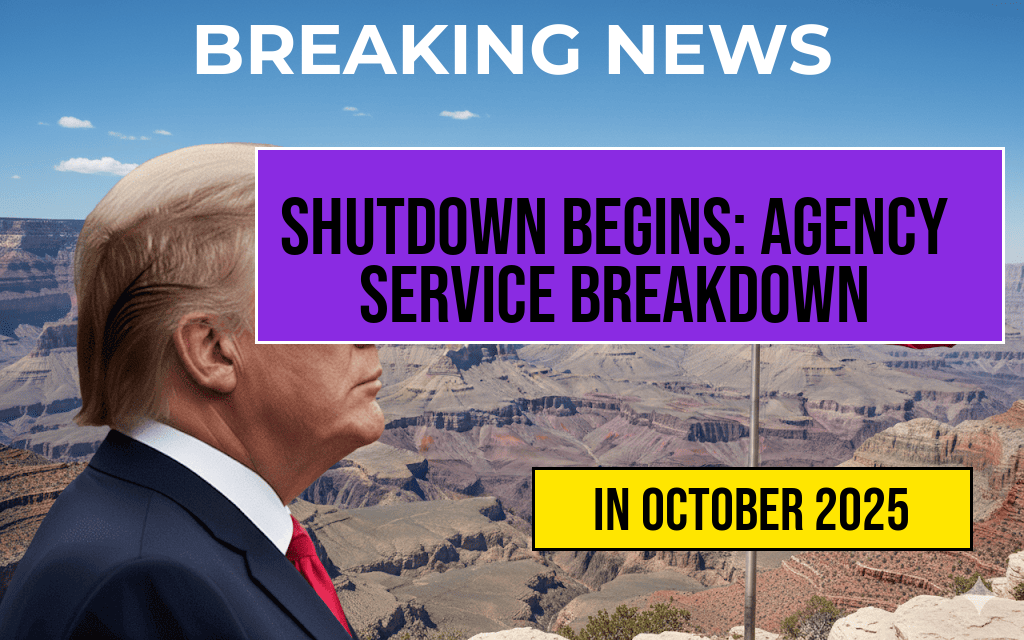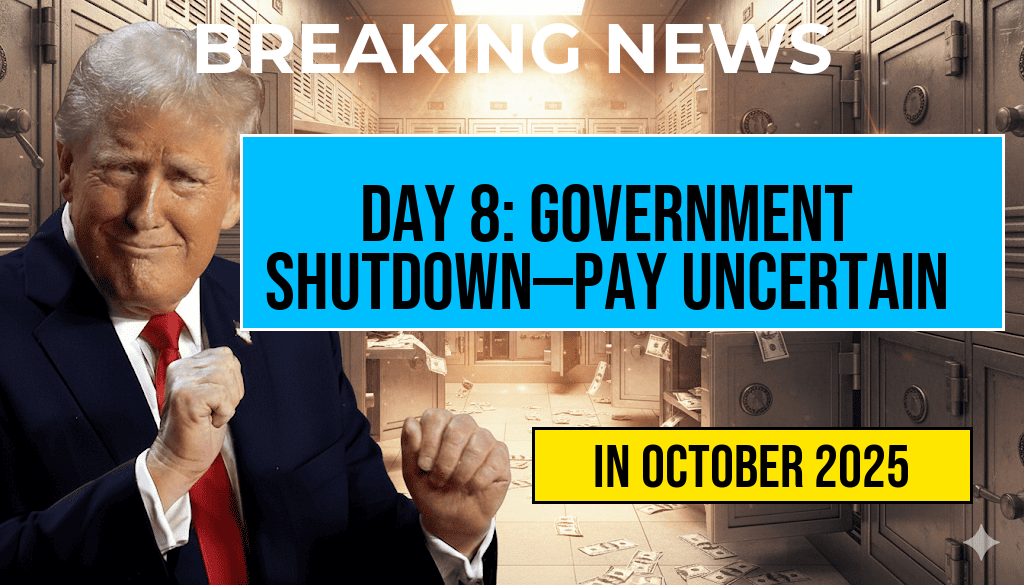The United States government has officially entered a shutdown phase after congressional negotiations failed to reach a funding agreement before the fiscal deadline. The shutdown affects numerous federal agencies and services, with some operations remaining open due to their classification as essential, while others have halted all non-essential functions. This disruption has widespread implications for millions of Americans relying on federal programs, from Social Security beneficiaries to defense contractors and travelers passing through airports. As lawmakers grapple with debt ceiling concerns and budget disputes, the impact of the shutdown is expected to ripple across the economy and public services in the coming days.
Overview of the Shutdown and Its Immediate Impact
The shutdown began early Monday morning after the expiration of existing funding measures. Government agencies that are deemed non-essential will cease most activities, furloughing thousands of federal employees, while agencies involved in critical national functions continue operations with limited personnel. The scale of disruption varies significantly between agencies, with some services continuing unabated and others suspending operations entirely. The shutdown’s duration remains uncertain, depending on political negotiations and the prospects of passing new funding legislation.
Essential Services Continue Amid Funding Gaps
Federal agencies designated as performing essential functions are authorized to keep operating during a shutdown. These include departments responsible for national security, public safety, and critical health services.
Defense Department
- Active military operations and personnel remain on duty.
- Contractors supporting ongoing missions continue work, though some new contracts may be delayed.
- Research activities at military research labs face delays or suspension.
Transportation Security Administration (TSA)
- Airport security screenings continue without interruption.
- Air traffic control services remain operational to ensure flight safety.
- Most TSA staff are deemed essential, though some administrative functions may slow down.
Social Security Administration
- Retirement, disability, and survivor benefits are disbursed on schedule.
- Customer service centers may experience longer wait times.
- Online services and mobile app access remain available for many transactions.
Other Agencies with Continued Operations
| Agency | Services Remaining Open | Services Suspended |
|---|---|---|
| Federal Emergency Management Agency (FEMA) | Disaster response, preparedness programs | Grant processing, non-emergency administrative tasks |
| Centers for Disease Control and Prevention (CDC) | Public health monitoring, disease control | Research projects not related to immediate health threats |
| National Aeronautics and Space Administration (NASA) | Continued missions with existing funding | New project approvals, administrative activities |
Non-Essential Services and Their Disruptions
Many federal agencies have suspended non-essential operations, leading to widespread service interruptions and furloughs for non-essential staff. These closures affect a broad range of public programs, administrative functions, and grant processes.
Internal Revenue Service (IRS)
- Tax processing and refunds face delays, especially for paper returns.
- Customer service lines experience high call volumes and longer wait times.
- Audits and investigations are paused unless related to urgent national security concerns.
Department of Housing and Urban Development (HUD)
- Processing of federal housing assistance applications slows down.
- Disbursement of some grants and funding programs is temporarily halted.
Department of Education
- Federal student aid processing continues for active students, but new applications may face delays.
- Grant programs and administrative services are suspended.
Implications for the Public and Economy
The shutdown’s immediate impact extends to millions of Americans depending on federal programs. Social Security beneficiaries typically continue to receive payments, but delays in processing new claims are possible. Travelers face longer wait times at airports despite TSA operations. Government contractors and employees face furloughs, leading to economic strain in affected regions. Financial markets react cautiously to the uncertainty, and economic forecasts may be adjusted downward as the shutdown persists.
Looking Ahead: Political Deadlock and Potential Resolutions
Lawmakers remain divided over key budget issues, including spending levels and policy provisions. The Biden administration has called for an immediate resolution to prevent further disruptions, but congressional leaders have yet to reach an agreement. While some analysts suggest negotiations could extend into weeks, others warn of additional escalation if no compromise materializes. The debt ceiling crisis also looms as a complicating factor, with potential for further economic instability if unresolved.
For updates on government operations and services during the shutdown, official sources such as USA.gov and the Congress.gov website offer authoritative guidance.
Frequently Asked Questions
What areas are affected by the government shutdown?
The government shutdown impacts various agencies, including Social Security, IRS, Defense, and TSA. While some essential services continue to operate, many non-essential programs and offices are temporarily closed or have limited operations.
Which services will remain operational during the shutdown?
Essential services such as Social Security payments, tax processing by the IRS, security at airports managed by TSA, and military operations will continue to function to ensure public safety and economic stability.
How does the shutdown affect Social Security beneficiaries?
During the government shutdown, Social Security benefits will still be processed and distributed as usual, ensuring that beneficiaries continue to receive payments without interruption.
Will the IRS still process tax refunds during the shutdown?
Yes, the IRS will continue to process tax refunds and essential taxpayer assistance, but some non-essential services and audits may experience delays until funding is restored.
What should travelers expect at airports during the shutdown?
TSA personnel and airport security screenings will remain operational, so air travel can continue as usual. However, some administrative functions within the transportation security agencies may be temporarily limited.







